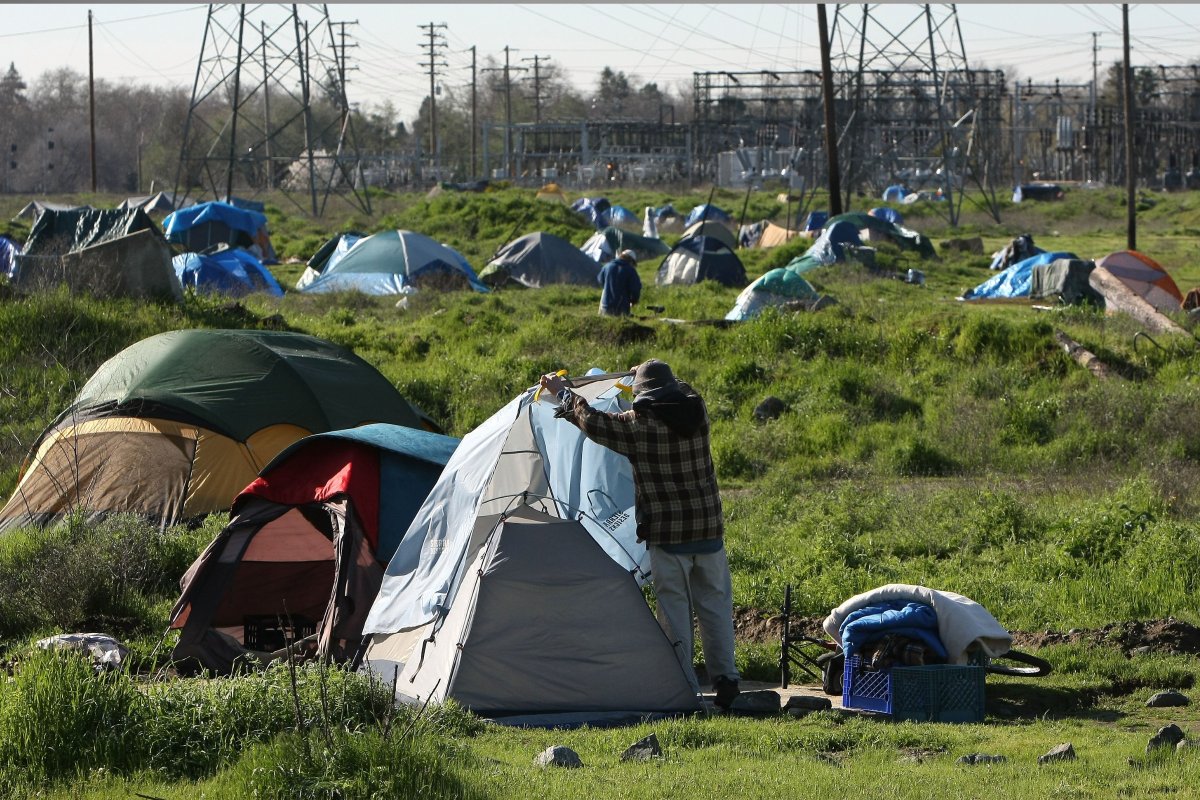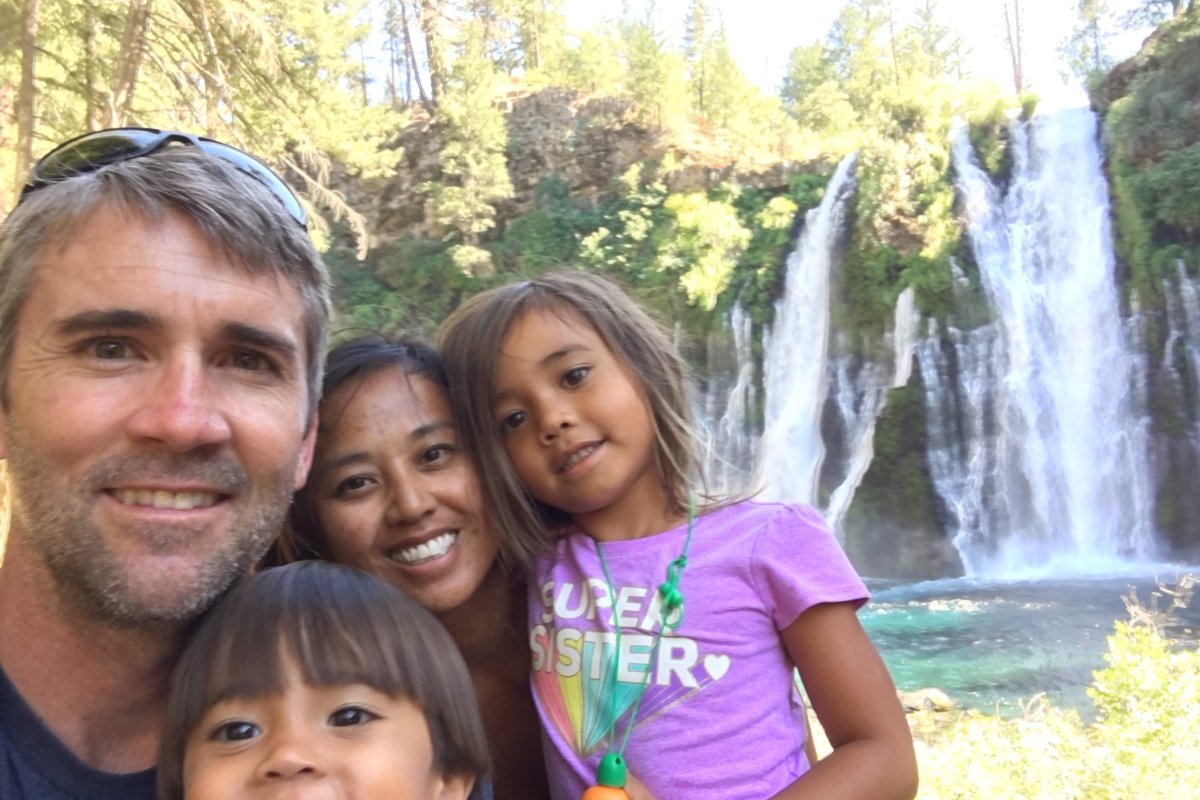I was a cop in Oceanside, California for over a decade. It's a town of around 170,000 people in north San Diego county and I've lived here for my entire life.
We have 12 documented violent street gangs, and two of our police officers were murdered in separate incidents, by gang members, in 2003 and 2006.
In 2000, California voters approved The Substance Abuse and Crime Prevention Act, which mandated that courts offer a drug treatment program to people arrested for felony drug possession of drugs including meth, heroin and cocaine.

Offenders who chose treatment over prison were enrolled in drug court—a specialized court docket program aimed at criminal defendants convicted of a drug offense—which I feel was actually pretty effective.
Those who chose prison instead of treatment were usually out in six months with good behavior, while arrested narcotics dealers often had their dealing charges reduced to simple possession and were offered drug court.
Thanks to this new act, which I feel was used very liberally by district attorneys, the percentage of simple drug possession offenders in prison in California was pretty low at the time.
Essentially, there was nobody wasting away in prison for a first-time drug offense. However, I often arrested the same person for possession of meth multiple times, and they were offered drug court every time.
Quite a few people chose prison instead of drug court. They loved meth more than anything, and for them, six months inside wasn't a big deal—they could still obtain drugs while incarcerated.
I was frequently told by those I arrested that it's very easy to "keister" drugs—hide them in their butt—to get them inside prison when full-body scanners aren't used to screen for it.
In 2014, voters approved The Safe Neighborhoods and Schools Act, which reduced all non-violent felony drug possession charges to misdemeanors. The new act also raised the amount thieves could steal before it was a felony from $400 to $950, and got rid of the felony charge for serial petty thieves.
Safe? I found that ironic.
We were told by advocates of the new legislation that there were hoards of people locked away forever, for simply having drugs or stealing a lollipop.
Prior to this legislation, if a serial thief had been found guilty three times and served one day in jail for each of those arrests, then they could finally be charged with a felony on the fourth arrest.
That bar was so high that I rarely arrested someone who qualified; maybe three times in 11 years.
So, contrary to what these advocates told us, there wasn't anybody languishing in prison unless they were an extremely prolific thief. Drug users and theft of all kinds go together; not only did we make it easier to use meth, I believe we made it much safer for users to steal.
In California, the majority of misdemeanor offenses require the arresting officer to "cite and release" the arrested person. So whether it's heroin, meth, or cocaine, after this legislation, we'd say: "Here's your ticket buddy, have a nice day."
Before this new law, drug addicts in California—who are now often seen in public living in tents—used to get arrested and be gone for six months. It was rinse and repeat, with those who chose prison often being out for a very short time before going back.

They could opt for treatment at any time but chose not to. They were not living in tents, perpetually, with no fear of repercussions, as they do now.
I continually read in our media that all of the homeless camps we see in California now are due to high housing costs. I do not agree with that. I spent years working 12-and-a-half-hour shifts, day after day, interacting with the homeless in Oceanside.
I'm a compassionate person, probably because I've struggled to manage Type 1 diabetes my entire life. I've shared my lunch with the homeless, heard their stories, spent my own money on a hotel room for a family, and much more.
This is my conclusion—lack of affordable housing is a problem, but it's not why we have such a huge increase in homeless camps and mentally ill people in California. I believe we have a massive drug addiction crisis, and no longer any tools to force anybody to change.
We also have a huge mental health crisis and no tools to force them into treatment. Meth use and mental illness are peas in a pod. So many of the people I took in for mental health holds—a 5150—told me their mental health deteriorated when they started using the drug.
I've had parents sobbing, pleading with me, to commit their mentally ill homeless adult children on a 5150 hold, and all I could tell them was: "I'm sorry, but because of the insane criteria we have, I'd be violating your kid's civil rights, and I can't risk losing everything I own by doing that."
People I legitimately placed on 5150 holds were almost always released from the hospital after a few hours, a day at the most. I would literally watch these mentally ill people die on the streets.
There aren't words to describe the horrors I saw. And yet, in my opinion, civil rights advocates continue to stand in the way of reform.

So here I am in 21st-century California, no longer able to take my little ones exploring natural areas as I did as a kid right here in Oceanside. All of the natural areas I roamed here as a child are now filled with drug addicts in tents.
Our hillsides have been plagued with environmental destruction from human waste and trash, and violence perpetrated by the inhabitants of the camps on each other.
We are building more affordable housing and treatment centers—great, it's very much needed.
But in my view, they will not make a noticeable difference in our current situation, because most of the people in those tents have what they want in life—cheap, easy access to meth, and freedom.
I acknowledge that Oceanside has very much improved from the 1980s and 1990s, when my classmates were being murdered in drive-by shootings. In fact, I never thought it would improve this much.
But, I also see us sliding down the slippery slope, back down toward the muck from which we arose; when frequent driveby shootings echoed through Deep Valley, you could buy shirts with "Oceanslime" on them, and hookers and pimps, gangsters and dealers were seemingly everywhere downtown.
I'm still here, now with young children in our public schools. I pray for them; that they won't experience the Oceanside of my youth, the town so many of my friends fled from the first chance they got, never to return.
Rick Campbell is a former police officer who lives in Oceanside, California.
All views expressed in this article are the author's own.
Do you have a unique experience or personal story to share? Email the My Turn team at myturn@newsweek.com.
Uncommon Knowledge
Newsweek is committed to challenging conventional wisdom and finding connections in the search for common ground.
Newsweek is committed to challenging conventional wisdom and finding connections in the search for common ground.
About the writer
Rick Campbell is a former police officer who lives in Oceanside, California.
To read how Newsweek uses AI as a newsroom tool, Click here.






